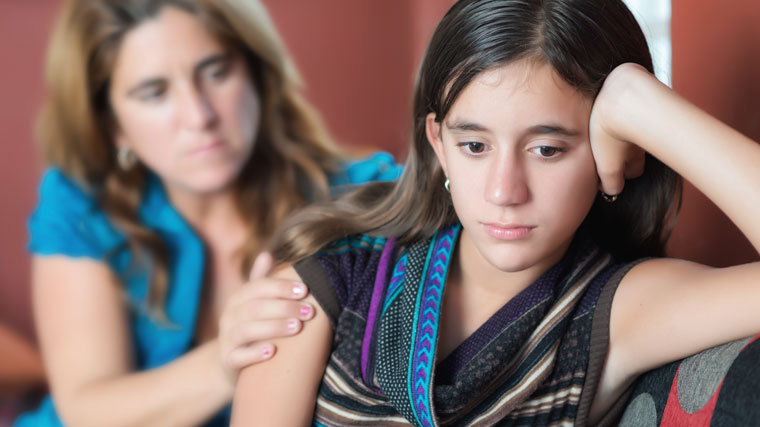Reduce Stress In Children And Teens

Answer a few questions and we'll provide you with a list of primary care providers that best fit your needs.
School is in session and sports and extracurricular activities are in full swing. For most kids, this is a fun time of year; but for some children, the stress of school, sports, and other activities can be a bit overwhelming, causing stress and anxiety.
Knowing some basic facts about stress helps to better understand its effects. The Centers for Disease Control and Prevention (CDC) defines stress as a physical and emotional response resulting from an increase in tension or worry about something dangerous, unknown, or disturbing.
Stress can affect a person’s mind, emotions, and body. It can make thinking and concentrating more difficult. Losing one’s temper or crying more easily are common with stress. It can upset a person’s digestion and make sleeping difficult even when tired. Depending on a child’s age, the ability to cope with stress varies. Younger children might have a more difficult time explaining their fears or stress.
Some other common signs of childhood stress or anxiety are:
- A change in a child’s behavior or mood
- Stomach aches or headaches
- A new nervous habit
- Refusal to go to school
- Poor behavior at school
- Decreased appetite
- New or recurrent bedwetting
- Nightmares
- Stuttering
Getting the right care and support can put problems in perspective and help stressful feelings and symptoms subside in a few days or weeks.
Common Sources of Stress
Common sources of anxiety and stress in children are problems at school, changes in the family, or a conflict with a friend. Anxious feelings can also be caused internally, such as wanting to do well in school or fit in with peers. Some common causes of stress in children include:
- Major changes in the family like divorce, death, birth of a sibling or relocation. Major life changes rattle your child’s comfort zone, and make him feel stressed and anxious.
- Overly ambitious schedules. If your child is constantly running from one activity to another, he may feel stressed, especially if he’s the type who needs some quiet downtime now and then.
- Self-generated pressure is common in children afraid of making mistakes or not being good at something.
- Stress caused by something at school. The pressure to fit in and be popular can be stressful and lead to stress in children. For younger grade-schoolers, anxiety about being away from home can be a common problem.
Treating the Stress
Parents can help their children respond to stress in healthy ways. Here are some helpful suggestions:
- Provide a safe, secure, familiar, consistent, and dependable home. Children love routine; a consistent bed time, bath time, dinner time and play time are comforting to children.
- Be selective in the TV programs your young children watch.
- Spend calm, relaxed time with your children.
- Encourage your child to ask questions.
- Encourage your child to talk about concerns, worries, or fears.
- Listen to your child without being critical.
- Build your child's feelings of self-worth. Use encouragement and affection. Try to involve your child in situations where he or she can succeed.
- Allow the child to make choices and have some control in their life.
- Encourage physical activity.
- Develop awareness of situations and events that are stressful for children.
- Recognize signs of unresolved stress in your child.
- Keep your child informed of necessary and anticipated changes such as changes in jobs or moving.
Families that have an open, accepting exchange of communication reduce anxiety and depression in their children. Encourage your children to talk about their emotions and help them discuss simple ways to change a stressful situation or their response to it.
Talk to your physician when signs of stress in your children do not decrease or disappear.
Answer a few questions and we'll provide you with a list of primary care providers that best fit your needs.
Source: Centers for Disease Control and Prevention




